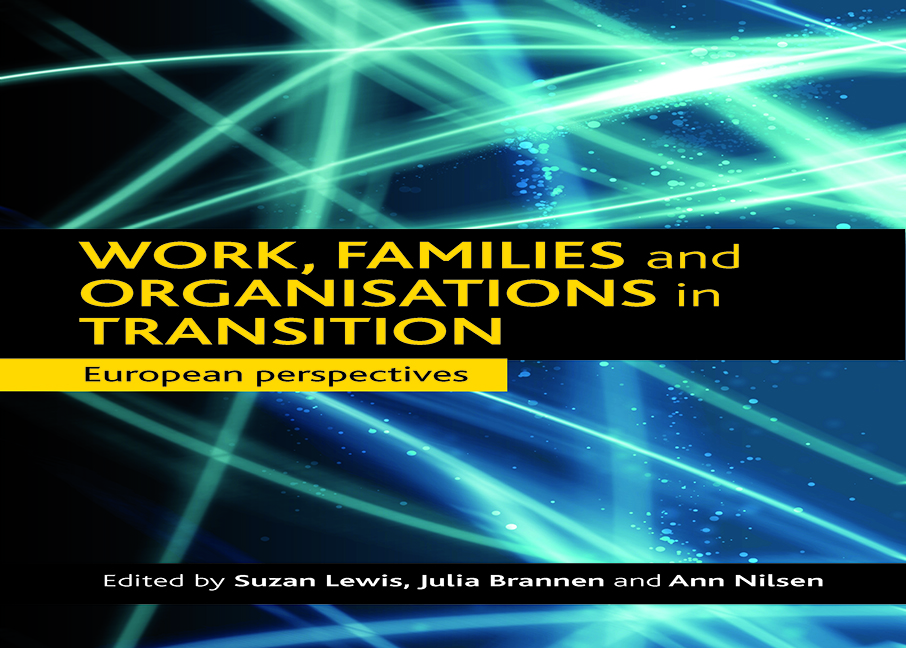Book contents
- Frontmatter
- Dedication
- Contents
- Acknowledgements
- Notes on contributors
- one Work, family and organisations in transition: setting the context
- two Research design and methods: doing comparative cross-national research
- Part One Public sector organisations
- Part Two Private sector organisations
- Part Three Comparisons
- Appendix
- References
- Index
twelve - In conclusion
Published online by Cambridge University Press: 16 July 2022
- Frontmatter
- Dedication
- Contents
- Acknowledgements
- Notes on contributors
- one Work, family and organisations in transition: setting the context
- two Research design and methods: doing comparative cross-national research
- Part One Public sector organisations
- Part Two Private sector organisations
- Part Three Comparisons
- Appendix
- References
- Index
Summary
In this final chapter we will consider what can be learned from the case studies about how national public policy is implemented and supported, or undermined, by workplace practices and trends in particular workplaces that were broadly comparable across countries. Employing organisations affect employees’ opportunities and strategies for integrating work and parenting, by the supports they provide and also by the demands that they make on parents. We noted in Chapter One that the literature suggests a growth in what are often called ‘familyfriendly’, ‘work–family’ or ‘work–life balance’ policies and what is typically referred to as ‘flexible working’ arrangements. This volume provides evidence to support this in both the public and the private sector but not in all countries. However, it also shows how the existence of support at organisational and national levels does not necessarily produce a sense of entitlement and enable parents to take advantage of these policies. Moreover, even if parents do take up policies, the impact is not always positive and unproblematic. In this chapter, we make some comparisons across the organisational case studies and make sense of the disparate picture they suggest.
Comparing formal policies across countries
A key question addressed by the case studies in this book is how formal policies at national (public policy) and/or organisational policy levels support working parents and their need to fulfil their responsibilities to their children in particular contexts. In short, how do such policies play out in practice in parents’ lives and how does this vary across the countries we have studied?
As set out in Chapter One, in some of the seven countries under study the national policies are generous and provide in principle substantial time flexibility, substantial amounts of leave and financial remuneration for parents with responsibilities for younger children – Norway and Sweden representing by far the ‘best cases’ in this study. However, other countries provide parents with some formal rights. In Portugal, for example, new – albeit small – changes were introduced through the Public Law to enable Portuguese parents to work continuous shifts and so allow them to shorten their working day. In the Netherlands, the Dutch government expects social partners (that is, the employers’ associations and trades unions) to extend public policy entitlements by offering additional support under collective agreements: the result is that most Dutch employers offer at least one work–life policy that supplements statutory provision.
- Type
- Chapter
- Information
- Work, Families and Organisations in TransitionEuropean Perspectives, pp. 179 - 188Publisher: Bristol University PressPrint publication year: 2009



